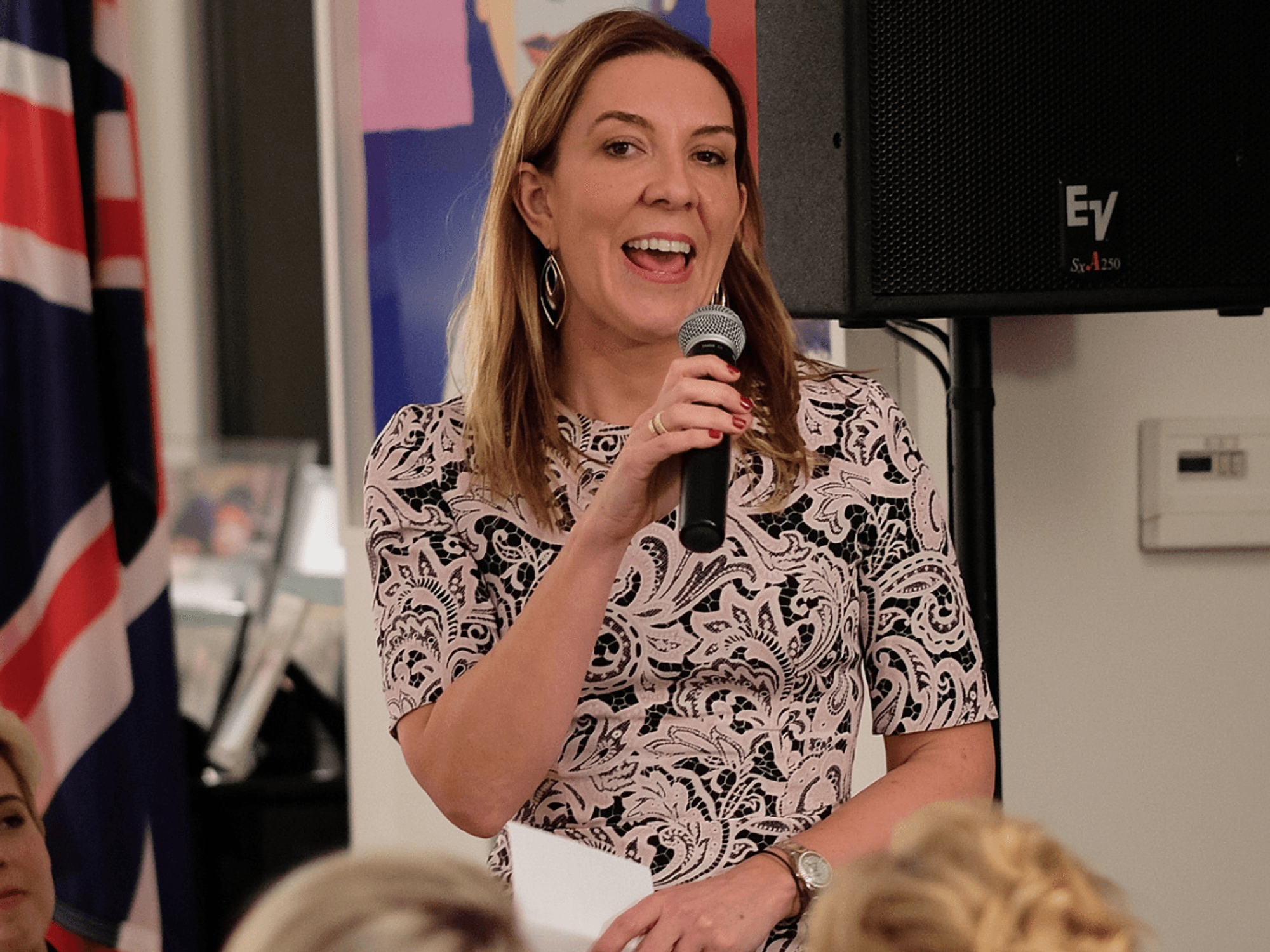Decline of BBC as a trustworthy source on its Middle East reporting is saddening - Laurence Julius

'The BBC have failed as a public broadcaster to deliver news without bias,' says Laurence Julius
|GB News/ PA
Laurence Julius is the Vice Chairman of the National Jewish Assembly
Don't Miss
Most Read
It saddens me to see the decline of the BBC as a reliable trustworthy news source on its Middle East reporting.
The main thrust of the Asserson report is that the BBC systemically and abjectly breached their editorial guidelines on impartiality, fairness and establishing the truth. They have failed as a public broadcaster to deliver news without bias. This is a major governance failure and a fundamental breach of the Royal Charter under which they operate.
The BBC is the most influential media organisation in the world with an audience of over 500 million including major thought leaders. Other media organisations follow their lead.
The main thrust of the Asserson report is that the BBC have systemically and abjectly breached their own editorial guidelines on impartiality, fairness and establishing the truth. They have failed as a public broadcaster to deliver news without bias. This is a major governance failure and a fundamental breach of the Royal Charter under which they operate.
To quote from the report: “Our analysis reveals a significant deviation from the standard especially in reporting on the Israel-Hamas conflict, where the broadcaster has shown a clear bias towards one side.” This bias was even more pronounced in the BBC’s Arabic content.
This fall from grace, is all the more disturbing, as listeners in authoritarian countries rely on the BBC for trusted news.
The BBC’s biased narrative feeds anti-Semitism and anti-Israel hatred. For those who have a limited understanding of the Middle East, this bias and distortion is framing their perceptions.
While the Asserson report focuses on English and Arabic broadcasts post the October 7 Hamas attack, the issues at the BBC have been worsening over time and affect all their services, including their Persian and Turkish broadcasts, whose content is very similar to BBC Arabic.
The methodology uses both human reviewers and AI to perform the analysis, and the results clearly identify systemic bias.
Sympathy
The researchers assessed the tone of the BBC's English language coverage. Sympathy for Palestinians was significantly higher than for Israelis, even in the first few weeks
Following the October 7 attack, pro-Palestinian sentiment was nearly double that of pro-Israeli sentiment.
BBC Arabic showed imbalance at every time-point, even the week of the October 7 Hamas attack.
Some 90 per cent of the podcasts hosted by Lyse Doucet and Jeremy Bowen broadcast from October 7, 2023, until December 23, 2023, displayed an anti-Israeli/pro-Palestinian bias.
This pro-Palestinian/anti-Israeli imbalance is across all principal television news programmes; Newsnight broadcast no programmes positive to Israel.
On BBC Arabic, many interviewees were either members of Hamas or had posted on social media in support of terrorism against Jews, Including celebrating October 7. These affiliations were rarely disclosed by the BBC.
Omissions and accuracy
The BBC is obligated to ensure that “no significant strand of thought is under-represented or omitted”. Whilst the BBC has editorial freedom as to how to frame a story, it must not omit or under report significant aspects of the story.
A few examples include:
– Hamas is referred to as a proscribed terrorist organisation only 8 per cent of the time when Hamas is mentioned.
– Journalistic Freedom: The BBC is obliged to tell its audience when reporting under restrictions. Hamas strictly controls journalism in Gaza. The BBC fails to inform its audience.
– The Hamas Charter calling for the destruction of Israel and the killing of Jews is barely mentioned.
– War Crimes - With both sides being accused of war crimes and denying liability, we would expect the BBC to treat the allegations of war crimes with some balance. Yet we find that Israel is associated 592 times, and Hamas only 98.
– Failure to explain the military challenges facing Israel and its military aims.
Inaccurate reporting
The BBC rarely admits errors and rarely makes corrections.
These included incorrect statements which excited widespread anti-Israeli feeling, such as the incorrect stories that Israel had executed Palestinian civilians; or that an Israeli missile had killed 500 people by attacking Al Ahli hospital.
Furthermore, 100 per cent of the “material” errors corrected by the BBC were corrections/retractions of stories which were originally anti-Israeli.
The BBC has relied heavily on evidence from Hamas to report the number of deaths in Gaza, without raising concerns about such a source, as required by the Guidelines.
Obscure and ambiguous language is used in reporting Israeli hostage and civilian deaths, but not Palestinian deaths.
Journalist personal opinion
BBC Journalists are bound not to express personal opinions on air or elsewhere. Jeremy Bowen, in his book, the Making of the Modern Middle East, frequently expresses his opinions, including strong negative views about Israel and strong positive views about Palestinians.
The overall conclusion of the report is that the BBC was found to have materially and systemically breached its obligations for impartiality and accuracy in its portrayal of the Israel-Hamas War. Its governance has failed on almost every level to comply with its editorial guidelines and with its Royal Charter. Within BBC Arabic, the problems are almost endemic.
LATEST OPINION:
- Tories shouldn't fear Farage - but what he stands for should give parties sleepless nights - Stephen Pound
- Scandal of Facebook poster in prison while high-priced shrinks save Huw Edwards - Kelvin MacKenzie
- Just say no, prime minister! Accepting gifts can embroil politicians in scandal early in their careers - Nigel Nelson
The report recommends the BBC should:
- Conduct a Thematic Review into its coverage of the Israel-Hamas war and the Middle East generally.
- Implement internal systems to monitor for impartiality.
- Overhaul its Editorial Complaints Unit which is unfit for purpose, denying BBC management, editors and journalists useful feedback. It needs to be independent.
The BBC receives £4billion p.a. from the public purse, which trusts it to provide accurate, fair, balanced and impartial news. The report’s findings underscore the need for immediate reforms to restore public trust and ensure that its reporting meets the high standards of journalism which the BBC sets for itself.










